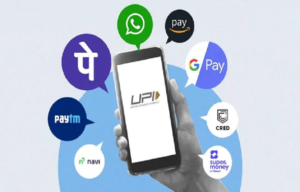
Finance, as we know it, is experiencing rapid metamorphosis, primarily spearheaded by fintech companies. They are harnessing the power of open banking, making financial data more readily accessible than ever.
This article will explore the influence of fintech firms leveraging open banking, transforming business transactions’ very nature. So, if you want your business to thrive amidst cut-throat competition, you cannot afford to ignore this emerging trend. So, fasten your seat belts, and let’s delve into the fascinating ways fintech is reshaping the business landscape!
Open Banking Unveiled
Open banking refers to financial institutions’ practice of sharing certain customer data with third-party developers, aimed at boosting customer choice, innovation, and competition in the financial sphere.
Traditionally, customers had little control over their data usage by banks and other financial entities. However, open banking, through APIs (Application Programming Interfaces), empowers customers to share their data with anyone they want.
It enables customers to use applications and services from a variety of providers to manage their finances most suitably. This also paves the way for new business types to enter the market, offering unique products and services.
The Power of Open Banking: How Fintech Companies are Revolutionising Business Transactions in 2021 offers an excellent insight into Open Banking and its potential.
Open Banking’s Advantages for Businesses
Open Banking benefits businesses in several ways. One significant advantage is cost savings on transactions. Open Banking allows businesses to connect directly to their bank’s API, giving real-time transaction pricing, bypassing traditional banking fees, like wire transfer or foreign exchange fees.
It can also accelerate transactions. Traditional banking methods may take days or weeks to complete a transaction, whereas Open Banking accomplishes this in real-time, saving businesses valuable time and effort.
Moreover, Open Banking provides businesses immediate access to their funds, enabling them to better manage their cash flow and avoid exorbitant overdraft fees.
Fintech Firms and Open Banking
Open banking, which permits banks to let third-party financial service providers access customer data with their consent, creates collaboration opportunities between banks and fintech firms to devise innovative products and services that can benefit customers.
Fintech firms are exploiting open banking to create new products and services that save businesses time and money. For instance, some are offering solutions that enable businesses to automatically reconcile their bank accounts and track spending in real-time. Others are developing invoicing and payment solutions to help businesses streamline their accounting processes.
Enhanced customer service is another bonus. If a customer has inquiries about their bank account or transactions, they can directly contact the fintech firm instead of dealing with the bank. This direct access to customer data enables fintech firms to resolve any issues swiftly.
Challenges and Risks with Open Banking
Despite its numerous benefits, open banking has its own set of challenges and risks. Data security is a primary concern. Sharing financial data with third-party fintech companies introduces the risk of data compromise.
Regulatory uncertainty is another challenge. As a relatively new concept, the regulations around open banking are still being shaped, leading to potential rule changes that may impact fintech companies.
There is also the risk of open banking being misused for money laundering and other illicit activities, requiring vigilant regulatory oversight.
Case Studies on Open Banking’s Effectiveness
Open banking, an emerging trend wherein banks allow third-party developers access to customer data to create applications and services around it, holds immense potential. This article delves into open banking’s potential and how fintech firms are using it to revolutionise business transactions.
Fintech companies are making the most of open banking to devise innovative products and services, altering the business operations landscape. Examples include real-time payments, lending services, and financial advice provision.
Despite potential risks, including data security and privacy issues, open banking’s popularity is on the rise, primarily driven by fintech firms. While open banking is in its early stages, it carries immense potential to disrupt the way businesses operate altogether.
Alternatives to Open Banking
Open banking, the practice of sharing financial data with third-party applications typically via APIs, is not universally embraced. Some banks, due to security concerns or desire to control user experience, have been reluctant. Hence, many fintech companies have devised open banking alternatives, allowing businesses to share financial data with third-party applications.
Plaid
One such alternative is Plaid, offering APIs that allow developers to access financial data from over 10,000 institutions. Plaid also provides products that make it easier for businesses to utilise this data, including:
- Plaid Connect: Allows businesses to connect their customer’s bank accounts to their own application to facilitate payments or other transactions.
- Plaid Auth: Enables businesses to verify customer identity using their bank account information.
- Plaid Balance: Gives businesses real-time insight into a customer’s account balance.
Yodlee
Another alternative is Yodlee, which also offers an API to access financial data from over 16,000 institutions. Yodlee also provides several tools that assist businesses in managing this data, including:
- Yodlee Analytics: Helps businesses track customer spending patterns and gain insights into customer behaviour.
- Yodlee Payment Hub: Allows businesses to process payments from various bank accounts.
- Yodlee Risk Advisor: Helps businesses detect fraud and manage risk.
Finicity
Finicity, another open banking alternative, provides APIs for developers and a suite of products designed to ease businesses’ access to financial data and transactions. These products include Finicity Verification for quick customer identity verification using bank account information, Finicity Insights for tracking spending patterns and gaining customer behaviour insights, and Finicity Payments for secure payment processing from various bank accounts.
Final Thoughts
Open banking has drastically reshaped the fintech companies’ operational landscape, enabling faster, more secure transactions for customers. This technology will continue to grow and evolve in the coming years, simplifying business transactions and opening doors for all-sized businesses to tap into its benefits. Open banking promises a new wave of innovation, making business transactions more straightforward and efficient than ever. As we plunge deeper into the digital age, open banking could emerge as a critical tool in achieving financial success.







